Germany Says Not Interested In Resuming Nuclear Talks With Iran
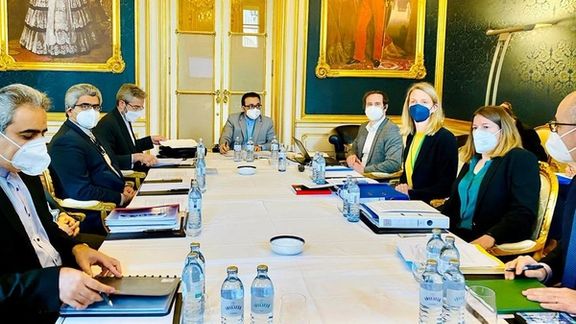
As the Islamic Republic of Iran seems to be searching for a way to resume suspended nuclear talks, Germany, one of the negotiating sides, is opposed at this time.

As the Islamic Republic of Iran seems to be searching for a way to resume suspended nuclear talks, Germany, one of the negotiating sides, is opposed at this time.
German Foreign Ministry spokesman Christofer Burger stated Wednesday that Berlin sees no reason to return to the JCPOA negotiations.
“From our point of view, there are currently no indications or reasons for a resumption of the Iran nuclear negotiations,” said Burger, noting that Berlin is focusing on support for Iranian protesters.
He said Germany wants to be on the side of the people who are in the streets fighting for their freedom and dignity and to increase pressure through sanctions on the regime to stop its repression of the people.
US National Security Council Strategic Communications Coordinator John Kirby also told reporters last week that Washington does not “see a deal coming together anytime soon, while Tehran continues to kill its own citizens and sell UAVs to Russia.”
While Germany says there is no reason to resume the JCPOA talks, Iran's Foreign Minister Hossein Amir-Abdollahian announced during his trip to Oman on the same day that Muscat is “seriously making efforts” to mediate to revive the nuclear deal.
The European parties to the Iran nuclear deal and the United States say they were “very close” to reaching an agreement to revive the 2015 deal a few months ago, but Iran failed to cooperate by suddenly presenting “unacceptable” preconditions.
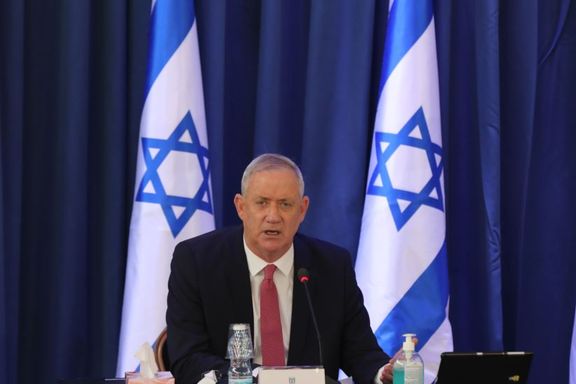
Israel could attack Iranian nuclear sites in two or three years, its defense minister said Wednesday, in unusually explicit comments about a possible timeline.
With international efforts to renew the 2015 nuclear deal (JCPOA) having stalled, the Iranians have ramped up uranium enrichment, a process that can eventually yield fuel for nuclear bombs - though they deny having any such design.
Experts say Iran could potentially raise the fissile purity of its uranium to weapons-grade in short order. But building a deliverable warhead would take it years, they say - an estimate echoed by an Israeli military intelligence general this month.
"In two or three years, you may be traversing the skies eastward and taking part in an attack on nuclear sites in Iran," Defense Minister Benny Gantz told graduating air force cadets in a speech.
For more than a decade, Israel has issued veiled threats to attack its arch-enemy's nuclear facilities if it deems world powers' diplomacy with Tehran a dead end. However, some experts doubt Israel has the military clout to deliver lasting damage to Iranian targets that are distant, dispersed and well-defended.
The Israeli military intelligence forecast for 2023 is that Iran "will continue on its current path of slow progress" in the nuclear realm, according to Israel Hayom newspaper on Sunday.
"Iran will only change its policies if extreme sanctions are imposed on it; then it could decide to accelerate enrichment to military grade," said the report, which a military spokesperson confirmed as citing genuine intelligence assessments.

In January 2022, world powers were in talks aiming to revive the 2015 Iran nuclear deal. The year ends with the powers in dispute at the UN Security Council.
Back in January, there was “no alternative to dialogue,” tweeted German Foreign Minister Annalena Baerbock in Washington. “Political decisions are needed now,” wrote Enrique Mora, the senior European Union official chairing the talks in Vienna aimed at restoring the JCPOA (Joint Comprehensive Plan of Action).
Iranian foreign minister Hossein Amir-Abdollahian agreed the talks were at a point where “we have to make a political decision.” Brett McGurk, a leading US security official, saw a “culmination point…pretty soon.”
But whatever political decisions were – or weren’t – taken, neither the Vienna process, paused in March, nor subsequent indirect US-Iran meetings were enough to bridge gaps, despite continued Iran-US message exchanges until at least September. While Iran reportedly dropped a condition that its Revolutionary Guards be removed from a US list of ‘foreign terrorist organizations,’ it continued to insist on ‘guarantees’ to cushion its economy and nuclear program from the US again leaving the JCPOA.
The Biden administration continued to apply ‘maximum pressure’ sanctions, in November sanctioning 13 companies from mainland China, Hong Kong and the United Arab Emirates, over alleged involvement in selling Iranian petrochemicals in East Asia. Tehran continued expanding its nuclear program beyond JCPOA limits, employing more advanced centrifuges to expand its stockpiles of uranium enriched up to 60 percent.
While the International Atomic Energy Agency (IAEA) reported regularly on Iran’s program, its access remained at a lower level than under the JCPOA. Tehran enforced a law passed by parliament in December 2020 after scientist Mohsen Fakhrizadeh was killed, so reducing agency monitoring roughly to that required under the Nuclear Non-Proliferation Treaty.
October: Involving the Security Council
The JCPOA reached the United Nations Security Council (UNSC) in October as France, the United Kingdom and the US argued Iran and Russia were violating UNSC Resolution 2231, which endorsed the JCPOA in 2015. The three argued that Russia’s use of Iranian military drones violated a clause restricting Iran trading some categories of weapons – an argument Tehran rejected.
This was a shift in the French and UK positions, bring them closer to the US than when in 2021 the E3 – France, Germany and the UK – rejected, on the grounds Washington had left the JCPOA, an US attempt to move UN sanctions against Iran for violating the 2015 agreement.
But this widened the gap with China and Russia. Geng Shuang, Beijing’s deputy permanent representative at the UN, told the UNSC December 19 that as the “the creator of the Iranian nuclear crisis…the US should recognize its responsibility and take the lead in taking practical measures.” Geng said that pressuring Iran would “escalate conflict, undermine trust and cast a shadow over the negotiations.”
Both Russia and China voted against motions in June and November at the 35-nation board of the International Atomic Energy Agency censuring Tehran over an agency enquiry into uranium traces found at undeclared sights, saying the vote would merely make matters worse.
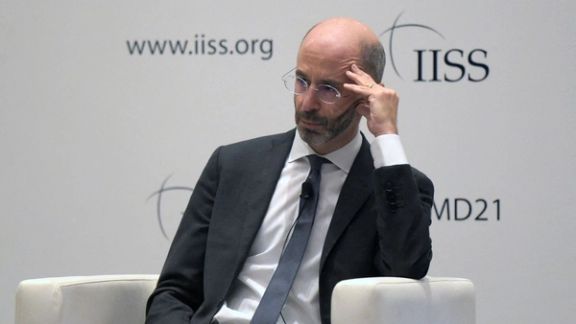
Talks ‘no longer our focus’
By October, US officials, including special envoy Rob Malley, said JCPOA revival was no longer their “focus.” President Joe Biden said Washington was instead “shining a spotlight” on protests in Iran – so rejecting the logic underlying the JCPOA of isolating the nuclear issue. The US, the European Union and the UK all introduced sanctions on Iranian officials over gross violation of human rights during the deadly suppression of protests and over supplying drones to Russia.
Opponents of the JCPOA have ended 2022 in high spirits, nowhere more so than in Israel where Benjamin Netanyahu - whose warning over Iran go back to 1996 when he told the US Congress Tehran was “extremely close” to a nuclear weapons - is preparing to return to power in coalition with three far-right parties.
But some analysts have argued that new thinking is needed to restore momentum for non-proliferation. In November the Washington-based Arms Control Association called for a ‘plan B’ based on “confidence-building steps by the United States and Iran to prevent further escalation...”
In the Washington Post December 1, Ellie Geranmayeh, of the European Council on Foreign Relations, rejected widening sanctions that had led Iran to escalate, arguing for “an active diplomacy track… before it is too late.” She called for “step-by-step measures” to at least freeze Iran’s nuclear program and improve IAEA access in return for “humanitarian economic relief” and eased “sanctions enforcement against third parties trading with Iran, such as those in Iraq, the United Arab Emirates and China.”
But given the prevailing atmosphere amid government violence that has killed 500 protesters and supply of weapons to Russia, tensions with Iran are no longer just over the nuclear issue.
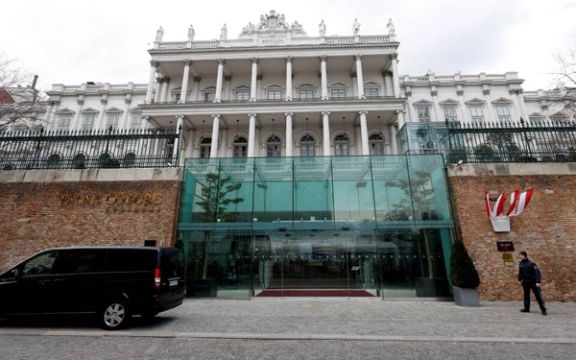
Israeli officials say that the White House is still seeking to reach a nuclear deal with Iran despite the comments by President Joe Biden who said earlier the deal is “dead”.
Israeli daily Haaretz wrote Tuesday that Israeli officials believe the Biden administration is still aiming to reach a nuclear agreement with the Islamic Republic and has the support of the US defense establishment while the recently emerged footage showing President Biden saying the deal was “dead” has gone viral on social media.
In this video, the US President confirmed that the deal was “dead”, but he said he could not announce it officially for “a lot of reasons”.
Biden did not give a direct answer about the “reasons” why Washington refuses to officially announce this. Israeli officials say this might have been a slip of the tongue by Biden.
Israeli officials quoted by Haaretz claim that Washington knows it will be difficult for the Iranian regime to suppress the recent protests without improving the economic situation and therefore concluding the deal may be in their interest.
These officials who have been in touch with their US counterparts have also given the impression that despite the challenging situation, a significant twist in the nuclear deal was coming within in a few months.
However, an Israeli official told Haaretz that “Israel has no practical capacity to attack Iran effectively without the support and cooperation of the US, and anyone who says otherwise is willfully lying.”
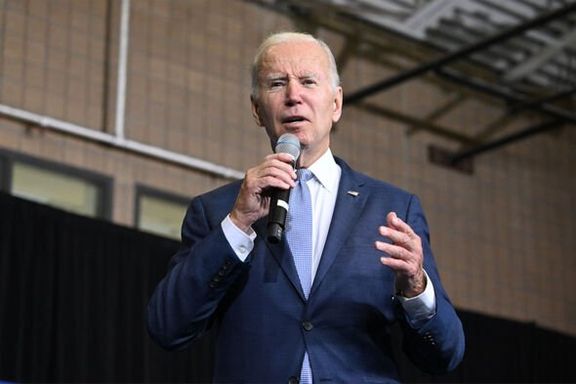
A video of US President Joe Biden saying the nuclear deal with Iran is “dead” has gone viral among Israelis with former premier saying it is “a great achievement for his government”.
In a tweet on Tuesday, former prime minister Neftali Bennett said, “Great achievement by our government! Quietly, and through a series of diplomatic and other wise actions, we managed to stop the return to the nuclear deal without confronting the United States.”
“We also brought the fight against Iran’s terrorism (and not just the nuclear program) from Israel's borders to Iran’s soil. We hit the head of the octopus to weaken its tentacles. The new government should continue the same process,” he added.
During an interview with a New York Times columnist on June 21, Bennett talked about his “Octopus doctrine,” saying Israel hits Tehran at the head of the octopus rather than its tentacles that have spread across the region.
Biden’s video, which was published on Twitter for the first time by Damon Maghsoudi, a software engineer living in the United States, was recorded on the sidelines of the November 4th election campaign in California.
In this video, the US President clearly confirmed that the JCPOA is “dead”, but he said he cannot announce it for “a lot of reasons”.
Although Biden does not give a direct answer about the “reasons” why Washington refuses to officially announce this, concerns about Iran’s progress towards obtaining a nuclear weapon could be the main reason for leaving the door open with the Islamic Republic.
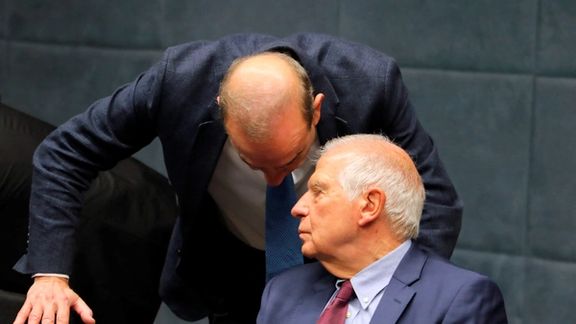
United States officials have played down but not contradicted remarks by President Joe Biden calling the 2015 Iran nuclear deal “dead.”
Shortly before European Union foreign policy chief Joseph Borrell met Iranian Foreign Minister Hossein Amir-Abdollahian in Jordan Tuesday a video emerged on social media late Monday of Biden making the remark on a walkabout November in California during Congressional elections.
Asked about the president’s comments in a press briefing Wednesday, Ned Price, the State Department spokesman, stopped short of endorsing them, saying it was “certainly the case that the Iranians killed the opportunity for a swift return to mutual compliance with the JCPOA.” Security spokesman John Kirby told journalists: “We simply don’t see a deal coming together anytime soon.”
Talks to revive the 2015 nuclear deal, the JCPOA (Joint Comprehensive Plan of Action) floundered in late summer with Iran and the US unable to agree over its restoration. The US, which left the agreement in 2018 and imposed ‘maximum pressure’ sanctions, rejected some Iranian demands as extraneous and unacceptable, without saying what these were.
JCPOA serves ‘security of the whole region’
With the three western European JCPOA signatories – France, Germany and the United Kingdom, the ‘E3’ – close to the US position, diplomatic effort has come from the European Union. Borrell tweeted Tuesday that he had agreed with Amir-Abdollahian on the importance of keeping communications open to restore the JCPOA. In a statement to the United Nations Security Council Monday, Silvio Gonzato, the EU Chargé d’Affaires, said “diplomacy and restoring the JCPOA’s full implementation” were “still the best option” over nuclear non-proliferation and that restoring the JCPOA was “instrumental to the security of the whole region…”
Borrell’s tweet also “stressed need to immediately stop military support to Russia and internal repression in Iran,” so acknowledging the difficulty faced by the EU in maintaining nuclear diplomacy given Iran’s supply of military drones to Russia and its domestic unrest.
The ‘E3’ states were at one this week with the US in arguing at the UNSC that Iran’s supply of military drones violates UNSC Resolution 2231, which in endorsing the JCPOA banned the transfer to and from Iran of certain categories of weapons. Russia and Iran both reject the argument, which the UN is considering.
Wednesday's high-profile visit to Washington of Volodymyr Zelenskyy will see the Ukrainian President argue for more US arms – beyond the $20 billion Washington has supplied. Russia’s use of Iranian-made drones, while not a decisive factor in the war, has strengthened Ukraine’s case for more Western support.
‘Slap Tehran down’
JCPOA opponents in Washington and Israel increasingly deploy Iran-Russia defense links and Iran’s unrest to bolster their case. Mike Pompeo, Secretary of State as the US left the JCPOA, attacked Biden Saturday for any talks with a “brutal and corrupt regime.”Pompeo, who may run for president in 2024, spoke at a conference of the ‘Organization of Iranian American Communities,’ which is allied to the Albania-based Mujahideen-e Khalq.
Yonah Jeremy Bob, senior military correspondent, wrote in the Jerusalem Post Tuesday that UN action against Iran over the drones “could bring back unilateral sanctions crashing down on Iran,” referring to the hope that the alleged JCPOA violation by Iran would trigger US sanctions. This would, Bob argued, “slap Tehran down” and “flip the Biden administration’s policy…in one fell swoop.”
In his press briefing Tuesday, Price said the JCPOA “hasn’t been on the agenda for us for months.” Since September US focus had been both on “Iran’s deepening military partnership with Russia” and on “standing up for the fundamental freedoms of the Iranian people,” the spokesman said.
He agreed that the arrest of actor and “cultural icon” Traneh Alidoost was “part of the regime’s effort to sow fear and to suppress these peaceful protests.” The US has in recent months imposed additional sanctions on Iran over petrochemical exports, ‘human rights,’ and the supply of drones to Russia.